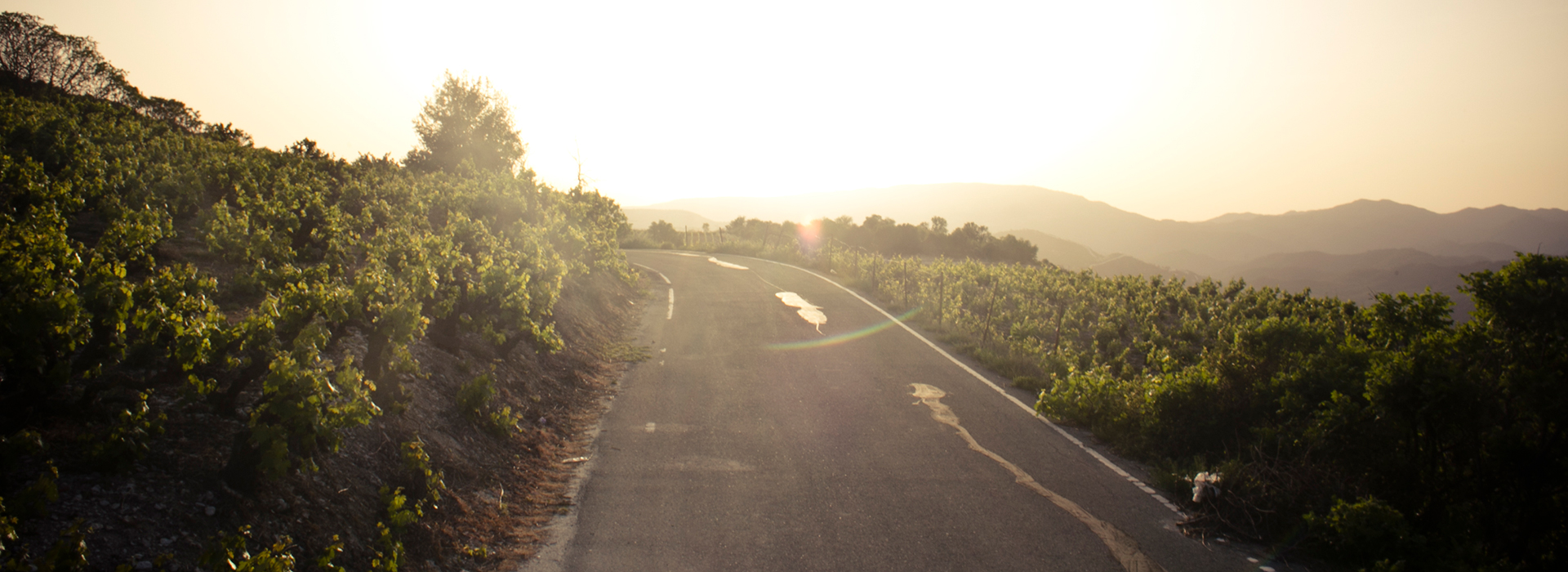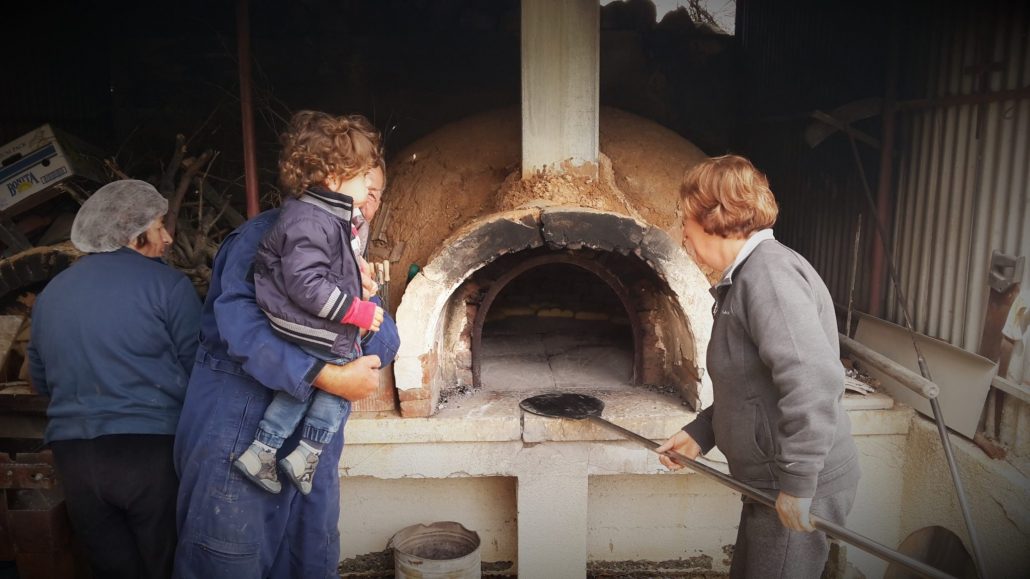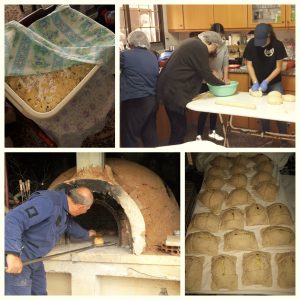A Winemaker’s Wife – Flaouna day, delving into true Cyprus tradition
Today I experienced my first real ‘baptism’ into the tradition of Easter Flaounes. Yes, during my years in Cyprus, I ate them, both homemade and from the bakery. There is no way to escape them during Easter time in Cyprus. The oven baked pastries, stuffed with a mixture of halloumi, anari, herbs, raisins and eggs, are a good savoury snack.
However, I never developed a real liking for them. Until today. Today I learned that Flaounes are not just an Easter pastry. They encompass a lot more.
Kiria Toulla, a family friend for many years, invited me over to her ‘koumera’s’ house up in Amiantos village to experience the Flaouna tradition. Thus, I drove up the mountains with Sebastian on a rainy Holy Thursday to see what the baking of Flaounes is all about.
Upon arriving I was warmly greeted by a whole group of people, koumeres, koumbari, nieces, aunts, cousins and so on. A big stone oven was being heated with charcoal by the men, as the women were inside preparing the dough and stuffing for the Flaounes.
A huge bowl with a huge engine driven mixer was mixing the dough (‘we got it from Syria, pio ftinó – cheaper) and different batches of dough were preped for different breads. A house in full action, with everybody at hers / his own task.
Once I went into the living room, I fully comprehended the size of the whole operation. Every flat surface of the living room was covered with white sheets and on them were laying tens of breads and Flaounes. On the floor, there were big plastic bowls with dough inside, slowly rising (fermentation!). And all the meanwhile, more was being prepared in the kitchen. One question immediately popped up in my mind: Who is going to eat ALL this??
I asked Toulla if they were preparing for the whole village and she laughed and said: No of course not, just for us and the extended family. But we will put most of them in the freezer and eat all year round. So, then I understood; one day of almost industrial bread and Flaounes making, will provide them with homemade bread for the rest of the year.
Once the oven was hot, the charcoal was carefully removed, keeping women and kids at a safe distance. And then the first batch went in the huge oven; about 20 breads and even more Flaounes. Time for everybody to have a short break with Cyprus coffee and homemade olive bread and tsourekia (Apparently made yesterday; otherwise there would not be enough time). But only a short break… because the last batches of dough were still to be prepared.
So everybody went back to the kitchen, which was a noisy and warm place, as the discussions about ‘how many with or without raisins’ and ‘what shapes’ went on. Each person attending to their own task in an efficient way. In the meantime, the first batch almost finished baking and the oven was opened frequently to see the colour of the bread and Flaounes.
Once they finally came out, a lovely smell filled up the back yard. Together with the heat of the oven, it made everybody forget that the rain was getting stronger and the fog thicker. Under the veranda on a big table, the first golden baked breads and Flaounes were cooling down.
Unfortunately I had to reject the invitation to stay for lunch (besides the bread, one of the husbands was cooking Octopodia for lunch) as little Sebastian was getting tired. Toulla immediately started packing me a bag of freshly baked Flaounes and bread to take home. As we got in the car, her koumera came with a chocolate tsoureki for Sebastian. And, so we drove home through the thick fog and heavy rain; a car smelling of fresh bread, Sebastian in a deep sleep digesting all his new experiences and me with a big smile on my face.
I realized that Flaouna is a delicious Easter snack. But it encompasses so much more. It is family bonding. It is village life. It is the joy of homemade food. It is hospitality. It is strong tradition. And most of all it is something to cherish.
Kalo Pascha, Happy Easter!
Love,
A Winemaker’s Wife






